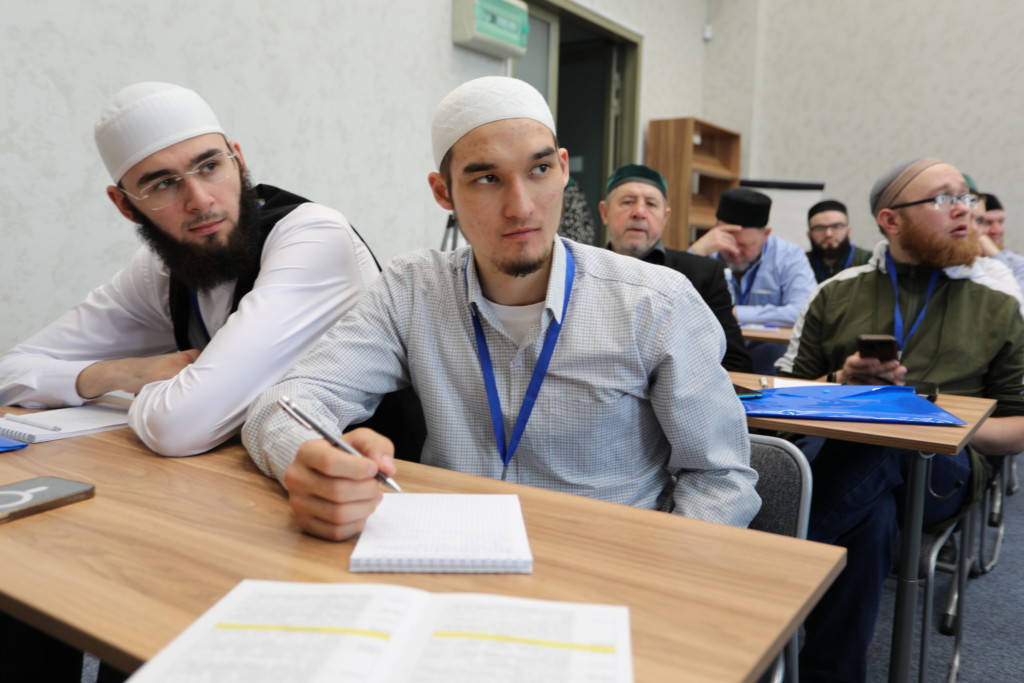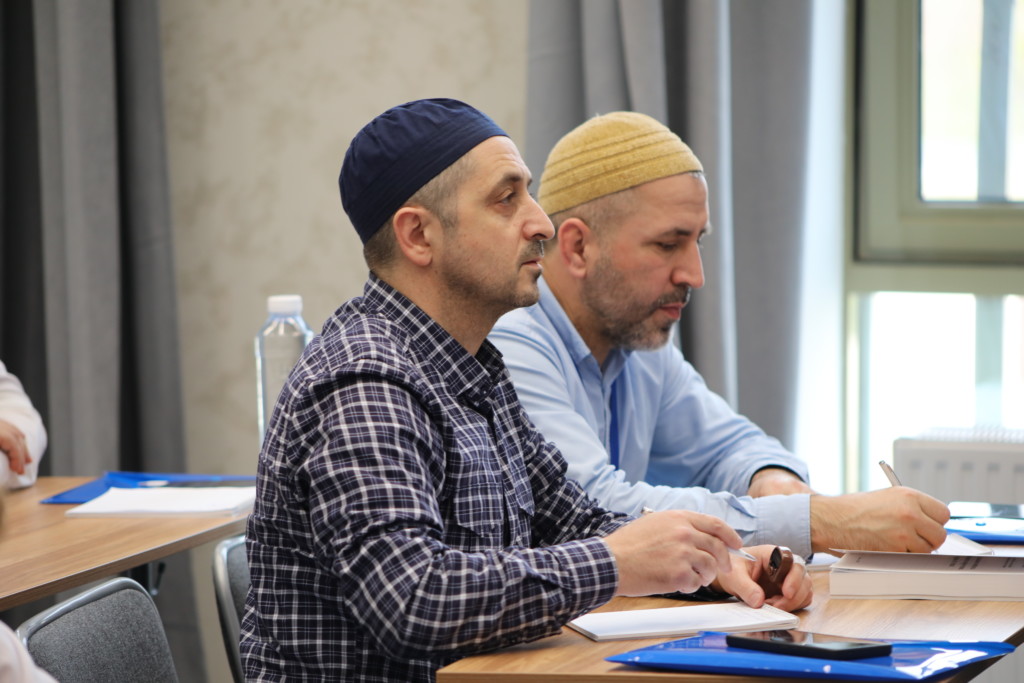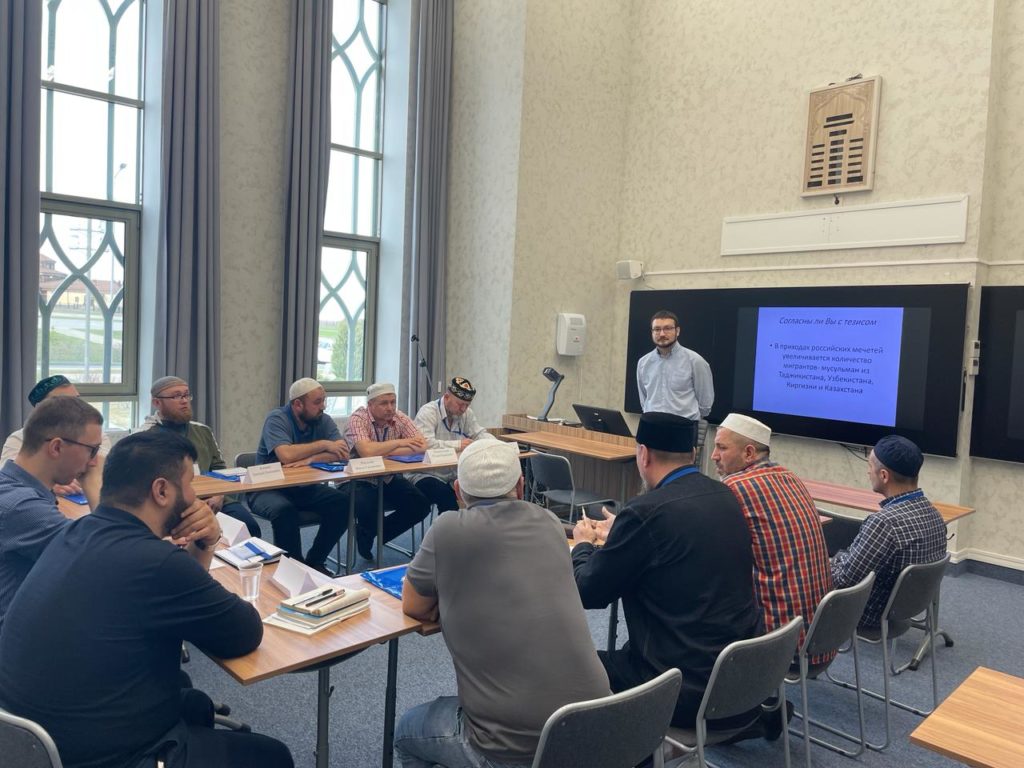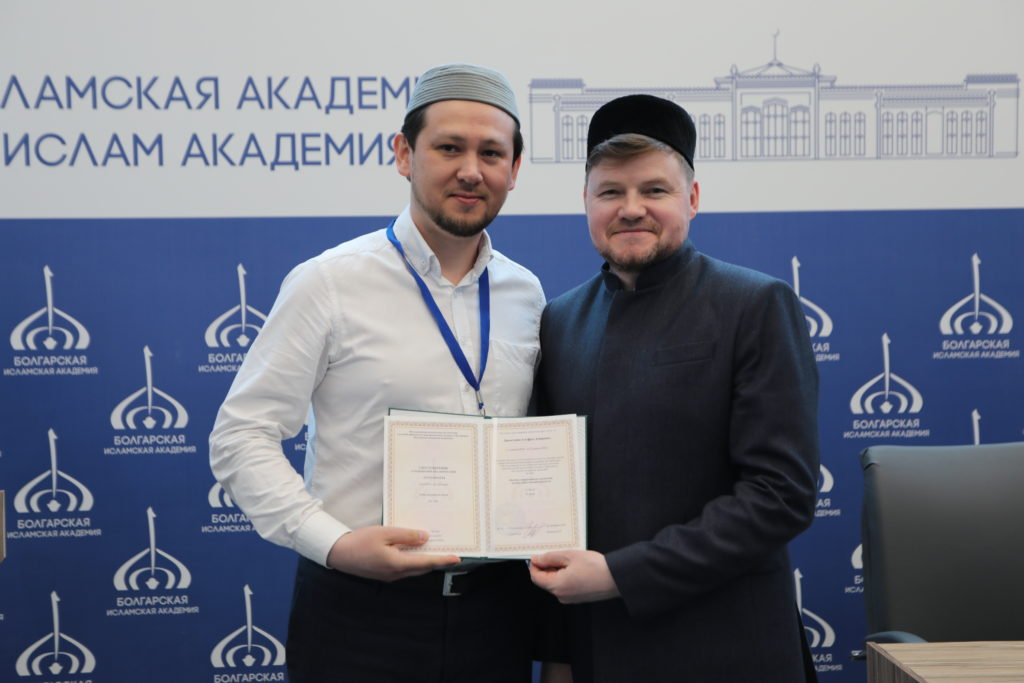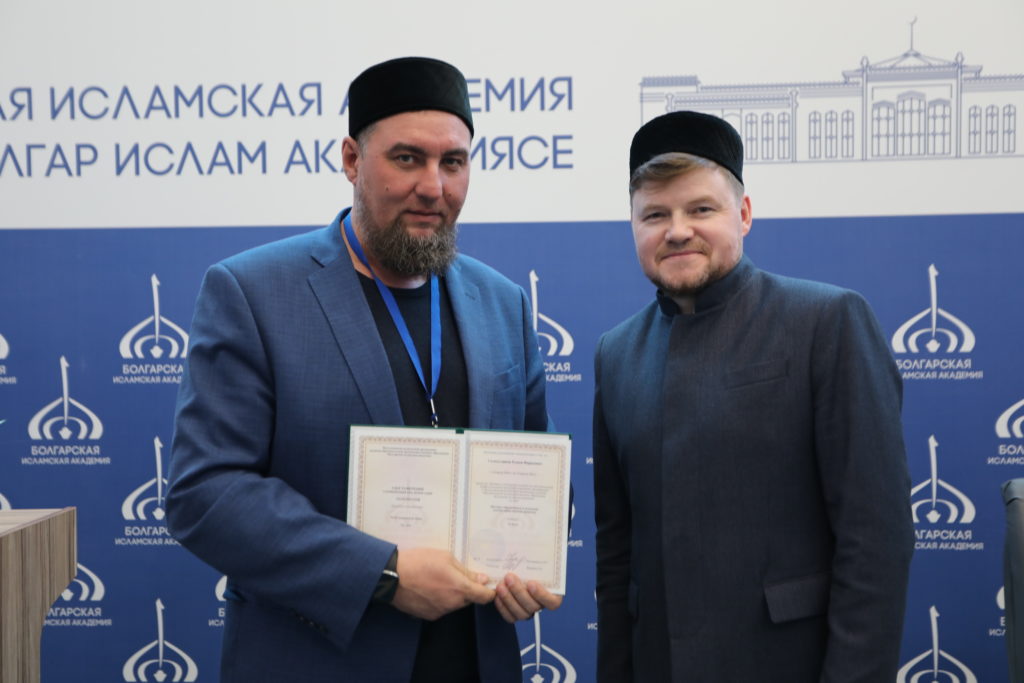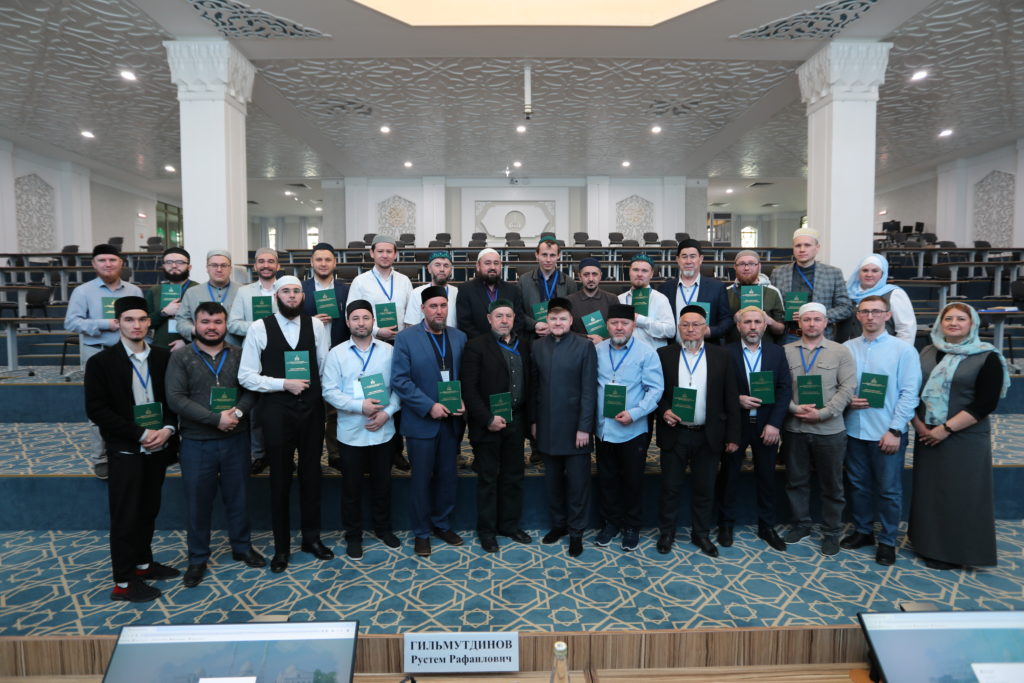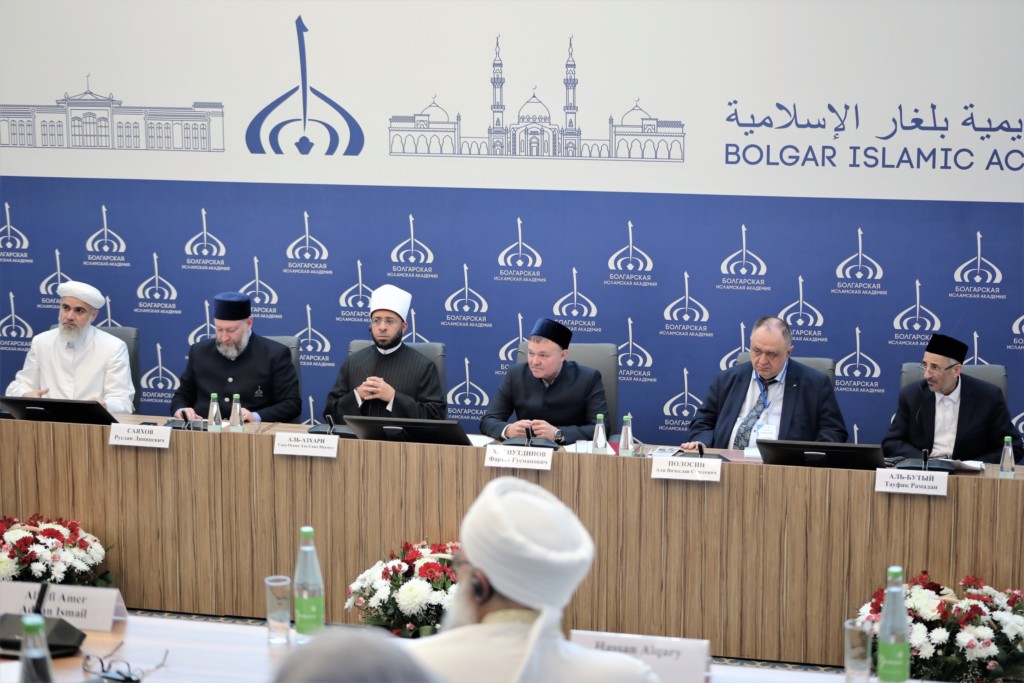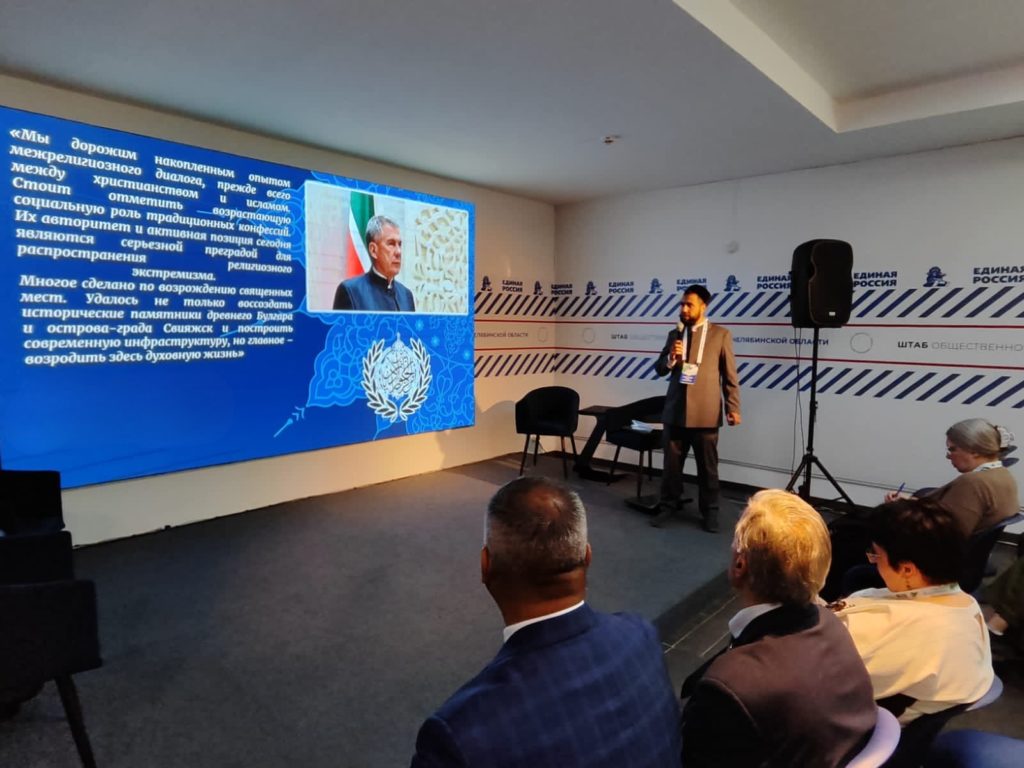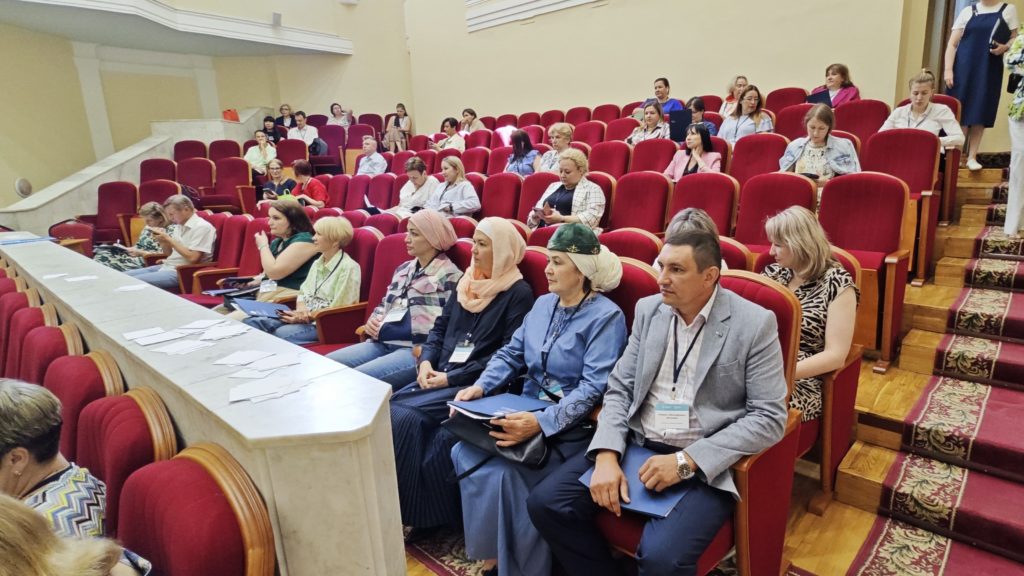From 15 to 21 April, training took place at the Bolgar Islamic Academy on the program for advanced qualification “Challenges of Modernity and Islamic Spiritual-Moral Values” with the support of the Foundation for Support of Islamic Culture, Science and Education. Representatives of religious structures from 12 regions took part in the training.
At the final stage of the program, the speakers were the senior lecturer of the Department of Theology of the Bolgar Islamic Academy Ilshat Mukhametzaripov, the senior lecturer of the department of psychology, pedagogy and jurisprudence of the Novosibirsk state university of economics and management Natalia Rekhtina, as well as the employees of the center for Islamic studies of the academy of sciences of the Republic of Tatarstan: head of the department “Center for Monitoring Interethnic and Interfaith Relations in the Republic of Tatarstan” Guzel Galieva, research fellows Anastasia Kasimova and Milyausha Gibadullina, junior research fellow Dinara Zhunusova.
In particular, the program participants mastered the basics of social design, familiarized themselves with the intricacies of managing the social networks of religious organizations, participated in the interactive platform “Islam and Society in the 21st century,” underwent training on the topic “Influencing the beliefs and behavior of supporters of radical ideas in conversation,” and also learned about the features of the psychological aspect of working with a radicalized environment.
“Be kind, do good and turn away from ignorance. This is what Islam teaches us. The Prophet (peace be upon him) said: ‘I was sent to perfect good character.’ Thus, Islam allowed for the preservation and improvement of the customs and rules existing in society at that time. Islam preserved the diversity inherent in various civilizations, in terms of clothing, food, drinks, and social relationships, and established many regulations for these customs, as long as they do not contradict Sharia,” the teacher explained.
The sheikh emphasized that Islam came to preserve noble morality and beautiful customs, to create people capable of combining their national culture with national unity and living in harmony, doing good and showing mercy, regardless of their ethnic, cultural, and religious background.
After passing the final test, all the participants received a certificate of professional development. While presenting the documents, the Vice-Rector for Educational Activities of the Academy, Rustem Gilmudinov, expressed confidence that the knowledge acquired in the Academy would be applied in their workplaces.
In turn, the Director of the Center for Islamic Studies at the Academy of Sciences of the Republic of Tatarstan, Rinat Pateev, noted that today, Muslim clergy includes not only theological and theological functions but also serves as psychological and social support for members of the community.
